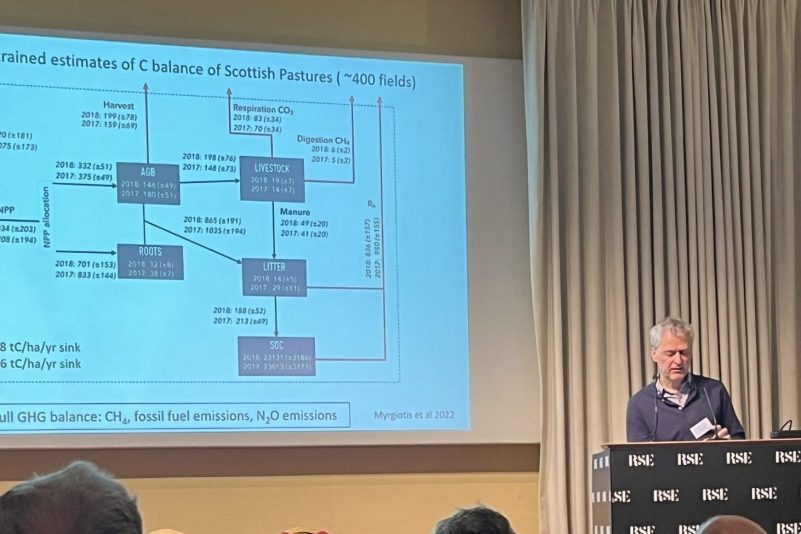Blog
How Science can Support Policy Making: Thoughts From a Chief Scientific Advisor

The recent LUNZ Big Tent event in Edinburgh was opened by Professor Mathew Williams, Chief Scientific Adviser (CSA) Environment, Natural Resources and Agriculture for Scottish Government. Read on for a summary of his key messages from the presentation:
- The debate about Net Zero is challenging because the topic is complex and it has heterogeneities leading to significant variability in the greenhouse gas budgets, farm to farm, field to field. There is robust science, but the challenge for researchers is how to communicate the science clearly.
- Decision making needs to consider the entire system and LUNZ should help to identify holistic transformation pathways rather than silver bullets. It needs to balance the multiple different components of a sustainable food system, linking biodiversity and ecosystem function to net zero and climate resilience, and considering both climate mitigation and adaptation.
- The policy-making process is cyclical. It consists of setting targets, monitoring actions, evaluating outcomes, assessing policy – and then updating them all over again. This requires close interactions between researchers, policy teams and government every step of the way.
- LUNZ should consider its work in a Global Context, particularly when it comes to supply chains and consumer behaviour. Focusing on national targets can lead to potentially perverse outcomes and offshoring issues which ultimately has a net negative globally. That means identifying potential leakage issues as well as the clear additionality of what we are doing in the UK.
- Characterizing and communicating uncertainty to support decision making is a major requirement for researchers. We will never have a perfect description of the system – indeed we may only have 70 or 80% of the knowledge we need, but still use that to make an effective decision. The challenge is how to get the language around uncertainty right, while still holding to the most robust science and evidence.
- Our work is urgent. We can’t wait until we have all the answers, but must work with the answers we have alongside uncertainty on less well known components. On this basis, we can identify the levers of change and communicate them to decision makers.
- The economic dimension is necessary to clarify value for money on decisions and also the costs associated with delivering them. Whilst we might not be able to put an exact number on nature, we should be able to clarify whether policy A or B has the best outcomes for nature.
- Co-developed, Place-based knowledge and decision-making is important to establish trust and find workable solutions around land use. Farmers and land managers need to be able to recognize their land, and know it’s robustly described, in the systems that we produce. In the example of Scotland, this means reflecting the variability from highlands, islands to lowlands.
Subscribe to our Newsletter
A quarterly update of all LUNZ Hub activities, events and news stories.
